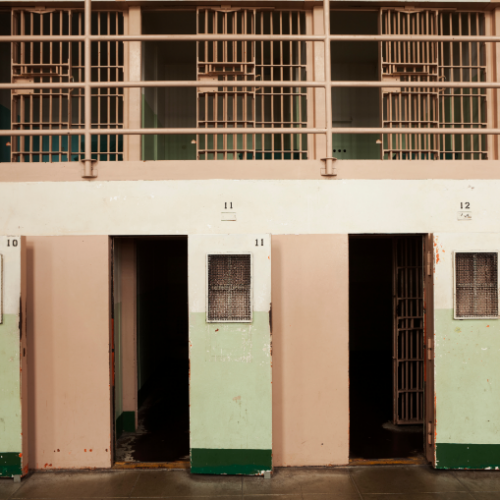Planning to Prevent Relapse? A New Tool Can Help
The tool helps corrections, supervision, and treatment provider staff support people with addictions in the criminal justice system.
The period of time immediately following release from prison or jail can be very challenging, but for people with substance addictions, this time can also pose significant health and safety risks. In addition to navigating employment, housing, personal relationships, and other common reentry challenges, people with addictions must be mindful of potential triggers that could lead to relapse or overdose.
Research shows that people leaving incarceration are at particular risk of relapse and overdose. For instance, in Washington State, over a 10-year period, the risk of death from all drug overdoses within the first two weeks after release from prison was 129 times that of other state residents. And in Connecticut, 52 percent of people who died from a drug overdose in 2016 had at some point been incarcerated.
These staggering statistics underscore the need for creating concrete plans to reduce relapse and prevent overdose so people with addictions can successfully recover and reenter the community.
A new Relapse Prevention Plan tool, developed by The Council of State Governments Justice Center, aims to help corrections and supervision agencies, as well as behavioral health treatment providers, do just that. Specifically, the tool provides guidance on how to:
- identify people who need relapse prevention plans
- develop tailored plans in collaboration with other agencies and the individual’s support network
- implement these plans and respond if a person does relapse
Relapse prevention plans are a critical part of any broader diversion and reentry case planning. The companion Collaborative Comprehensive Case Plans tool offers guidance on how to develop case plans in consultation with relevant partners—such as behavioral health treatment, supportive housing, and vocational and educational providers—that are tailored to a person’s distinct risks and needs. When continually updated and shared among partners, collaborative comprehensive case plans that include relapse prevention measures ensure people are connected to care as they transition from incarceration and minimize their health and safety risks.
Photo credit: Prostock-studio/Shutterstock.com
A positive school experience, where a child feels secure, is essential for their well-being. However, for many children…
Read MoreWhen returning to their communities from criminal justice settings, people with behavioral health needs face barriers in accessing…
Read More Supporting Children of Incarcerated Parents: Reimagining School and Community Collaboration
Supporting Children of Incarcerated Parents: Reimagining School and Community Collaboration
A positive school experience, where a child feels secure, is essential for their well-being. However, for many children with incarcerated parents—one in 14 in the U.S.—school can feel far from safe due to stigma, trauma, and a lack of understanding.
Read More Bridging Communities and Correctional Systems: Q&A with CSG Justice Center Advisory Board Member Commissioner Nicholas Deml
Read More
Bridging Communities and Correctional Systems: Q&A with CSG Justice Center Advisory Board Member Commissioner Nicholas Deml
Read More
 Assigned to the Cloud Crew: The National Incarceration Association’s Hybrid Case Management for People with Behavioral Health Needs
Assigned to the Cloud Crew: The National Incarceration Association’s Hybrid Case Management for People with Behavioral Health Needs
When returning to their communities from criminal justice settings, people with behavioral health needs face barriers in accessing basic needs—including food, housing, employment, transportation, education, clothing, and substance use and mental health services—which increases their risk of experiencing a crisis.
Read More Meet the Medicaid and Corrections Policy Academy Mentor States
Meet the Medicaid and Corrections Policy Academy Mentor States
New Hampshire Department of Corrections Commissioner Helen Hanks presents at the Medicaid and Corrections Policy Academy in-person meeting.
Read More Taking the HEAT Out of Campus Crises: A Proactive Approach to College Safety
Taking the HEAT Out of Campus Crises: A Proactive Approach to College Safety
The sharp rise in school shootings over the past 25 years has led school officials across the U.S. to take a closer look at ways to keep students safe. For Chaffey College in Rancho Cucamonga, California, a tragic incident at a nearby university hit close to home and spurred campus leaders to revisit their own school’s threat assessments and crisis responses.
Read More










